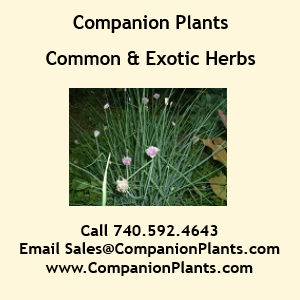
In today’s fast-paced world, finding moments of peace and tranquility is more important than ever. One such avenue that offers a plethora of physical and mental health rewards is gardening. Beyond just beautifying our surroundings, gardening has been scientifically proven to provide numerous benefits that positively impact our well-being.
Promotes Healthy Blood Pressure
Engaging in gardening activities has been linked to lower blood pressure levels. Spending time among greenery and nurturing plants can have a calming effect on the mind and body, ultimately reducing hypertension risk. Gardening can lead to decreased levels of cortisol, the stress hormone, which in turn helps to lower blood pressure. Additionally, the physical activity involved in gardening, such as digging, planting, and watering, promotes cardiovascular health, contributing to overall blood pressure regulation.
Nurtures Nutritious Eating Habits
Gardening facilitates healthier eating by promoting the consumption of home-grown produce over processed snacks. Having easy access to fresh fruits and vegetables encourages nutritious meal choices and reduces the intake of sugary and fatty foods. Furthermore, growing your own fruits and vegetables allows you to control the use of pesticides and chemicals, ensuring a safer and more wholesome food source. Individuals who engage in gardening tend to have higher intake levels of fruits and vegetables, leading to better overall health and lower risk of chronic diseases such as obesity and diabetes.
Fosters Social Bonds
Gardening often fosters community engagement and social interaction. Joining gardening clubs or participating in community gardens provides opportunities to connect with like-minded individuals, fostering a sense of belonging and support. Sharing tips, trading seeds, and working together on gardening projects can create strong bonds within the community. Moreover, group gardening activities, such as planting trees or maintaining public green spaces, promote a sense of collective responsibility and pride, further strengthening social ties and community cohesion.
Enhances Dietary Quality
Home-grown fruits and vegetables are richer in nutrients compared to store-bought counterparts. By growing their own produce, individuals can ensure a steady supply of nutrient-dense foods, contributing to overall better nutrition and health. Furthermore, gardening encourages experimentation with a variety of fruits, vegetables, and herbs, expanding dietary diversity and exposing individuals to a wider range of nutrients. People who grow their own food are more likely to consume a balanced diet rich in vitamins, minerals, and antioxidants, which are essential for optimal health and well-being.
Sharpens Focus and Concentration
Gardening requires attention to detail and focus, which can help improve concentration skills. Engaging in repetitive gardening tasks, such as weeding or planting, can promote mindfulness and mental clarity. Being present in the moment while tending to plants and observing their growth stimulates cognitive functions and reduces mental fatigue. Moreover, the sense of accomplishment that comes from nurturing a garden can boost self-esteem and confidence, further enhancing cognitive abilities and overall mental well-being.
Strengthens Bone Health
Regular gardening activities, such as digging and lifting, contribute to bone health. The weight-bearing nature of these tasks helps strengthen bones and muscles, reducing the risk of osteoporosis and related fractures. Gardening also exposes individuals to natural sunlight, which is essential for the production of vitamin D, a nutrient crucial for calcium absorption and bone health. Additionally, the physical exertion involved in gardening helps maintain a healthy body weight, further reducing the risk of musculoskeletal issues and promoting overall skeletal health.
Enhances Physical Flexibility
The varied movements involved in gardening, such as bending, stretching, and reaching, promote flexibility. Consistent gardening can help maintain joint mobility and range of motion, enhancing overall physical flexibility and agility. Moreover, practicing different gardening techniques and using various tools can challenge different muscle groups, improving overall muscle strength and flexibility. Flexibility is vital for preventing injuries and maintaining mobility, especially as we age, making gardening an excellent form of low-impact exercise for individuals of all ages and fitness levels.
Incorporating gardening into your lifestyle offers a holistic approach to wellness, benefiting both your physical and mental health. From promoting healthy blood pressure to fostering social bonds and enhancing dietary quality, the rewards of gardening are abundant. So, roll up your sleeves, dig into the soil, and reap the bountiful benefits of cultivating your own garden oasis.
Carrie Spencer is the owner of The Spencers Adventures. You can visit her website at TheSpencersAdventures.net.




Comment here